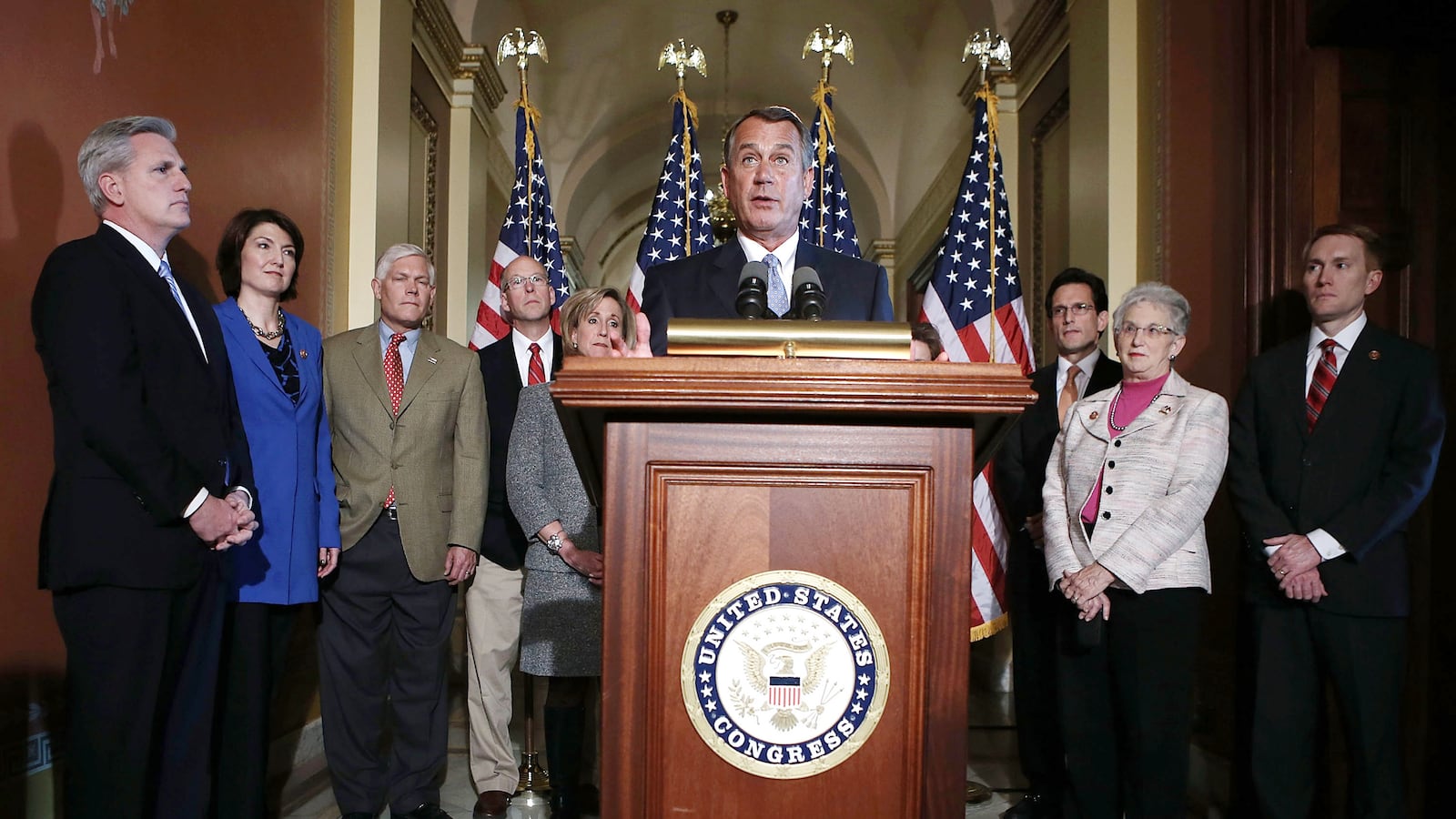The sequester, which is poised to hit at the end of this week, is dumb, dangerous, and bad policy to boot. And yet I can’t help but welcome its arrival. Why? It will lay bare an obvious fact that too many on the political right (and many in the political center) have been ignoring for the last few years. The federal government plays a very important role in the economy, in employment, in supporting consumption and investment, and in building and running the infrastructure that enables commerce.

Washington Republicans remain rather blasé about the impact of the upcoming sequester. But state Republican officials are already starting to freak out. Virginia Governor Robert McDonnell, a onetime Tea Party favorite, is worried the sequester will affect the large military and government operations in his state. That’s to be expected. Economically speaking, the Commonwealth of Virginia is rapidly becoming an exurb of the District of Columbia. But Washington pols may soon be hearing about the negative impact of the sequester from some distant Republican redoubts – like Utah.
Utah, where I spent the past week, might seem like an unlikely source of pleadings to maintain government spending at current levels. The state’s mythology and history speak to a sense of self-reliance, anti-government sentiment, and entrepreneurship. Mitt Romney, a quasi-native son by virtue of his Mormon faith, advocated balancing the federal budget through spending cuts alone. He carried the state last November by a stunning 73-25 margin. "I’m for sequestration," Sen. Orrin Hatch, the veteran Utah senator said last week, according to the Salt Lake Tribune. “We’ve got to face the music now, or it will be much tougher later."
And yet, the sequester is going to make the music really discordant in Hatch’s home state, which is disproportionately dependent on the federal government.
The federal government is the biggest employer in the state, employing 34,000 people in Utah. The list of the largest state employers is topped by Hill Air Force Base, a mammoth, 6,650-acre installation that specializes in aircraft maintenance. A city unto itself, Hill features residences, “a modern shopping complex,” plus “a bowling center, fitness center, clinics, chapel, museum, recreation center, officer and enlisted clubs, dining facilities and a child development center.” It has 1,475 buildings and 228 miles of roads. According to Natalie Gochnour, chief economist of the Salt Lake Chamber of Commerce, Hill directly employs 9,300 military personnel and 16,300 civilians, with a combined annual payroll of $1.2 billion. In addition, the base purchases $832 million in goods and services locally each year.
But wait, there’s more. A large regional IRS processing facility in Ogden (here’s a street view) employs between 4,000 and 5,000 state residents.
Oh, and because two-thirds of the state is federal land, the Bureau of Land Management and other federal agencies are major economic forces. Many small towns are home to BLM offices with several employees – biologists, firefighters, sanitation workers. “Typically in rural Utah, the biggest employer is the school district and right after that is the federal government,” Gochnour said.
The state’s large tourism economy also depends on the federal government to a degree. The Park City ski area, where I spent last week gasping for breath in the thin air and trying desperately to stay upright, welcomes about 1.7 million visitors per year. About 75 percent of the visitors come from out of state. The top markets are New York and Los Angeles. Without a smoothly functioning Salt Lake City Airport, staffed by the Federal Aviation Administration, ski tourists would go elsewhere. (It’s a long drive from New Jersey to Utah.)
Other big employers in the state include health care organizations, state universities, and the state of Utah – each of which is heavily dependent on federal funds. The pie chart on page three of this state report indicates that 27 percent of the state’s $13 billion budget comes from the federal government. According to the Bureau of Labor Statistics in December, 221,000 of the 1.26 million jobs in conservative, small-government Utah were in the government sector (local, state, federal), or about 17.5 percent. By contrast, in liberal, big-government Connecticut, 234,000 of 1.62 million jobs were in the government sector – or 14.4 percent.
As a result, across-the-board spending cuts are likely to cut quite deep. The state’s economy is growing rapidly, and it has clawed back the 100,000 jobs lost in the Great Recession. But Utah has a rapidly growing, comparatively young population, which means it needs significant jobs growth just to absorb new labor force entrants. The sequester alone won’t put the state’s economy back into recession, but it will put a dent in consumption and employment.
Liberals shouldn’t take any solace in the fact that a conservative state, represented largely by anti-tax, pro-austerity fundamentalists, might suffer disproportionately from the sequester. But it will be clarifying and useful for those who have been frustrated by the right’s refusal to recognize reality. The conventional wisdom holds that elected Republican officials can engage in the type of irresponsible brinksmanship that hurts economic growth without consequences since so many are in safe districts. But the sequester is going to cause a great deal of pain to governments, consumers, and, especially, to businesses back home – in Republican precincts as well as Democratic ones. Once the sequester hits, a rising chorus of local politicians, voters, and businesses will complain that arbitrary cuts in government spending are hurting economic growth. If Utah suffers a few months of layoffs, declining retail sales and slumping tourism, Sen. Hatch will be singing from the Keynesian hymnal.





